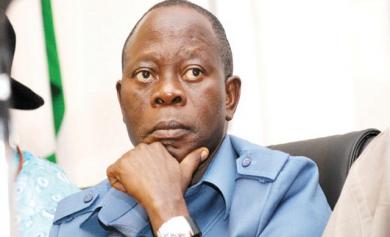
A Southwark Crown Court in London yesterday remanded a former Delta State Governor, James Ibori, in a United Kingdom (UK) prison. The ex-governor is standing trial over his alleged involvement in cases of multiple frauds.
The court also postponed the trial of the ex-governor till February 13, 2012 as a result of the arguments of Ibori’s defence team as the team claimed that they were not properly given enough time to prepare for the hearing.
During the proceedings yesterday the prosecutor, Miss Sasha Wass, said the defence team had adequate time to prepare, saying that many of the legal representatives had also worked on the trials involving associates of Ibori.
The prosecutor added that some of the complex evidence had been agreed over the course of the previous trials, insisting that she did not know what the defence team had been doing in the past months.
Wass further claimed that an independent expert on Nigerian law had given evidence in previous trials that the crimes committed by Ibori’s associates were illegal in Nigeria.
She said, “It doesn’t seem to us that they will be able to say that what Ibori did; stole, lied, cheated, would not be offences in Nigeria.”
In his ruling over the matter, Judge Anthony Pitts, who said that he was surprised with the argument of Ibori’s legal team, directed that the Ibori should remain in prison until the commencement of the trial.
The judge added that Ibori had the right to be defended by his legal team.
Though Ibori’s defence team did not object to the idea to extend the time that the ex- governor could be held in custody, the team said that the accused person could not be tried in the UK on the grounds that Nigerian court had already decided that there was no evidence that he had committed any crime in Nigeria.
Meanwhile, one of the lawyers to Ibori, Mr. Benjamin Aina (QC), told the court that it cannot proceed with the trial as planned in November on the grounds that the defence team need more time to go through the approximately 65,000 pages of evidence and travel to Nigeria to speak to witnesses.
He said, : “Due to differences in practice between here and Nigeria, it has not yet been established that whatever did or did not take place in Nigeria is in fact criminal, or is malpractice that falls short of criminality.


